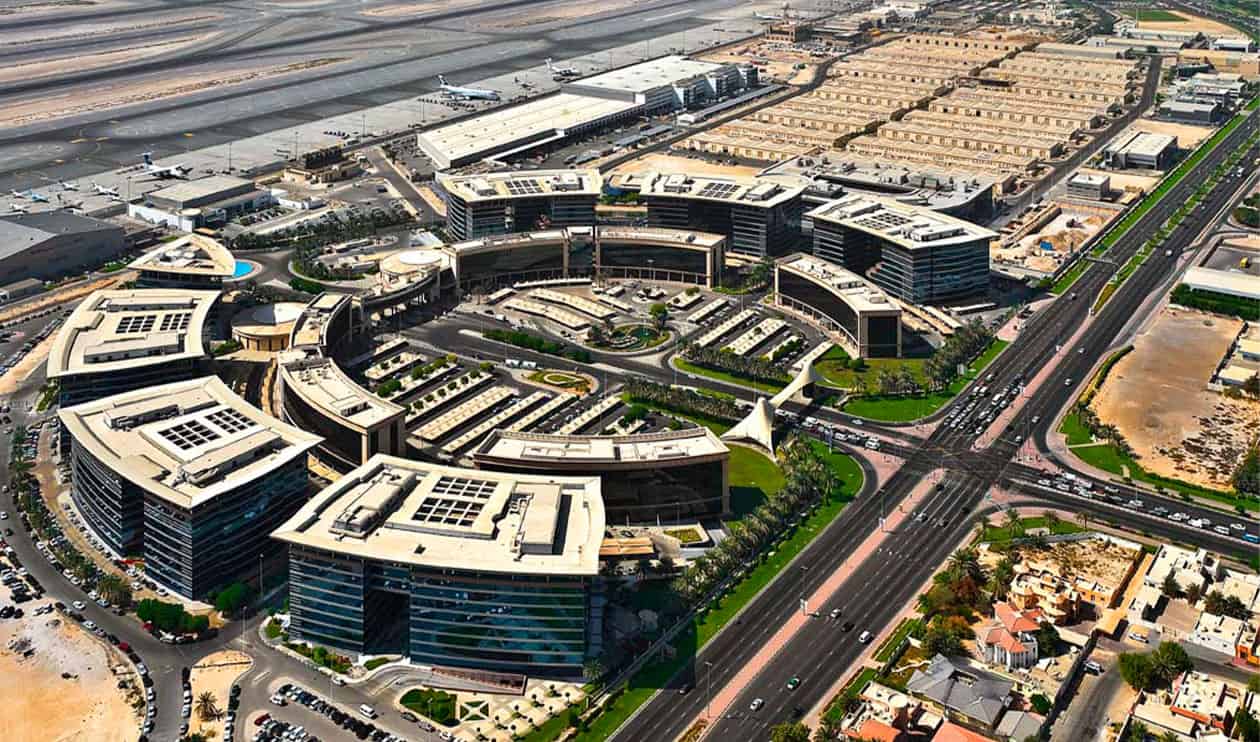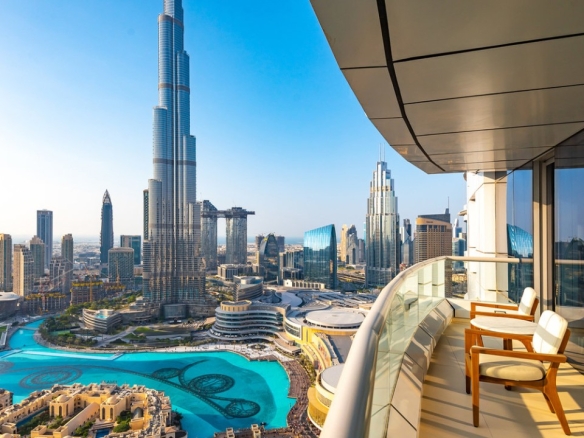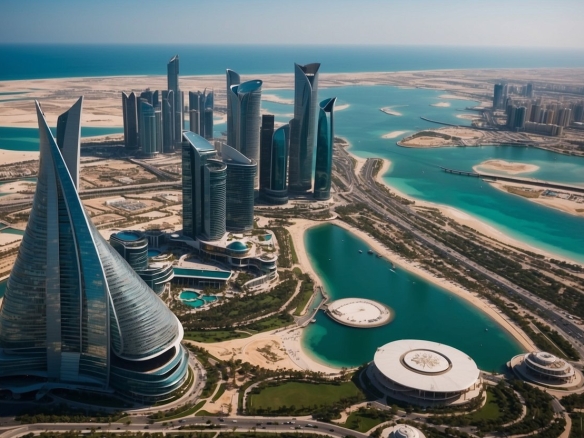Are you interested in setting up a business in Dubai’s tax-free zones? The process can seem daunting at first, but with the right approach and guidance, it can be a smooth experience. This article will provide you with a step-by-step guide on how to set up a business in Dubai free zones in 2023, the requirements, the types of free zones, and the benefits of choosing Dubai as your business location.
An Overview of the Different Types of Dubai Free Zones in 2023
Dubai is a hub for foreign investment, with over 20 free zones designed to attract investors from around the world. These free zones have specific regulations and requirements regarding the types of businesses allowed and the level of ownership granted to foreign investors. The free zones cater to various industries, such as aviation, logistics, media, technology, and healthcare.
One of the most popular types of free zones in Dubai is the technology, media, and production-free zones. These free zones are designed to attract companies in the technology and media industries, as well as those involved in the production of goods. The Dubai Technology and Media Free Zone (DTMFZ) is one such free zone that has been attracting a lot of attention in recent years. The DTMFZ offers a range of benefits to businesses, including 100% foreign ownership, no restrictions on repatriation of profits, and no corporate or personal income taxes.
Another popular type of free zone in Dubai is the logistics and trading free zones. These free zones are designed to attract companies involved in the import and export of goods. The Dubai South Free Zone is one such free zone that has been gaining popularity in recent years. The Dubai South Free Zone is strategically located near the Al Maktoum International Airport and the Jebel Ali Port, making it an ideal location for businesses involved in logistics and trading. The free zone offers a range of benefits to businesses, including 100% foreign ownership, no restrictions on repatriation of profits, and no corporate or personal income taxes.
Services and consulting free zones are also popular in Dubai. These free zones are designed to attract companies involved in the provision of services and consulting. The Dubai Multi Commodities Centre (DMCC) is one such free zone that has been attracting a lot of attention in recent years. The DMCC offers a range of benefits to businesses, including 100% foreign ownership, no restrictions on repatriation of profits, and no corporate or personal income taxes.
Finally, there are industrial free zones in Dubai that are designed to attract companies involved in manufacturing and heavy industries. The Jebel Ali Free Zone (JAFZA) is one such free zone that has been attracting a lot of attention in recent years. The JAFZA is one of the largest free zones in the world, covering an area of over 57 square kilometres. The free zone offers a range of benefits to businesses, including 100% foreign ownership, no restrictions on the repatriation of profits, and no corporate or personal income taxes.
In conclusion, Dubai’s free zones offer a range of benefits to foreign investors, including 100% foreign ownership, no restrictions on the repatriation of profits, and no corporate or personal income taxes. With over 20 free zones catering to various industries, Dubai is a hub for foreign investment and a great place to do business.
Dubai is a hub for international trade and commerce, and the free zones play a crucial role in facilitating this. The tax exemptions offered by the free zones can translate into substantial savings for businesses. This is particularly true for businesses operating in industries with high tax rates, such as oil and gas or telecommunications. In addition to tax exemptions, the free zones also offer 100% ownership of the company. This means that foreign investors can retain full control over their business operations in Dubai, without the need for a local partner. This is a significant advantage, as it allows businesses to operate with greater flexibility and independence. Fast company registration is another key benefit of the Dubai-free zones. The streamlined registration process means that businesses can set up operations quickly and efficiently. This is particularly important for businesses looking to establish a presence in the region as soon as possible. The world-class infrastructure in Dubai’s free zones is another major advantage. The free zones are equipped with state-of-the-art facilities, including modern office spaces, warehouses, and logistics centers. This infrastructure is essential for businesses operating in industries that require advanced technology and equipment. Free repatriation of profits and capital is yet another benefit of the Dubai free zones. This means that businesses can transfer their profits and capital out of the country without any restrictions or taxes. This is a significant advantage, as it allows businesses to reinvest their profits back into their operations or transfer them to other locations. Finally, the ability to operate from physical offices or virtual offices is a unique feature of Dubai’s free zones. This flexibility allows businesses to choose the type of office space that best suits their needs and budget. Virtual offices are particularly useful for businesses that do not require a physical presence in Dubai but still want to take advantage of the benefits offered by the free zones. In conclusion, the Dubai free zones offer a range of benefits to foreign businesses looking to expand into the MENA region. From tax exemptions and 100% ownership to fast company registration and world-class infrastructure, the free zones provide a highly attractive business environment. With the added benefit of free repatriation of profits and capital, businesses can operate with greater flexibility and independence, making Dubai an ideal location for international trade and commerce.
Requirements for Setting Up a Business in Dubai Free Zones in 2023
Setting up a business in Dubai free zones in 2023 can be a lucrative venture for foreign investors and companies. However, before embarking on this journey, there are specific requirements that need to be fulfilled to ensure a smooth and successful process.
One of the primary requirements for foreign investors is to have a valid UAE residency visa. This visa is necessary to conduct business in Dubai and the UAE. The visa application process can take some time, so it is advisable to start early to avoid any delays in the business setup process.
Another essential requirement is a well-drafted business plan. This plan should outline the company’s objectives, target market, marketing strategies, and financial projections. The business plan is crucial in securing funding and attracting potential investors, partners, and customers.
Additionally, each free zone in Dubai has its regulations and requirements that investors need to familiarize themselves with. For instance, some free zones require a minimum capital investment, while others have specific business activities that are allowed. It is essential to research and understand the regulations to ensure compliance and avoid any legal issues in the future.
Aside from the legal requirements, it is also essential to consider other factors such as the location and infrastructure of the free zone. Some free zones are strategically located near airports, seaports, and major highways, making it easier to transport goods and services. Others have state-of-the-art facilities and amenities that can help businesses operate efficiently.
Moreover, it is crucial to have a reliable and experienced business setup consultant to guide you through the process. They can provide valuable insights and advice on the legal and regulatory requirements, assist with the visa application process, and help with company registration and licensing.
In conclusion, setting up a business in Dubai free zones in 2023 can be a profitable venture for foreign investors and companies. However, it is essential to fulfill the necessary requirements, research and understand the regulations, and seek professional guidance to ensure a smooth and successful process.
A Step-by-Step Guide on Setting Up a Business in Dubai Free Zones in 2023
Dubai has become a hub for businesses worldwide, thanks to its strategic location, tax-free policies, and world-class infrastructure. The process of setting up a business in Dubai’s free zones is relatively easy and straightforward. However, it may vary slightly from zone to zone. Here is a detailed guide on how to set up a business in Dubai’s free zones:
- Choose the best free zone for your business
Dubai has over 30 free zones, each with its unique features, incentives, and regulations. Before choosing a free zone, research and compare the different free zones to find the one that best suits your business needs. Some of the popular free zones in Dubai include Dubai Multi Commodities Centre (DMCC), Dubai Silicon Oasis (DSO), Dubai International Financial Centre (DIFC), and Jebel Ali Free Zone (JAFZA).
- Set up a legal structure
After selecting the free zone, the next step is to decide on the legal structure that best suits your business. The most common legal structures for businesses in Dubai’s free zones are:
- Limited Liability Company (LLC): This is the most popular legal structure for businesses in Dubai’s free zones. It requires at least two shareholders and allows for 100% foreign ownership.
- Free zone Company: This legal structure is suitable for businesses that want to operate within the free zone only. It requires at least one shareholder and allows for 100% foreign ownership.
- Branch office: This legal structure is suitable for businesses that want to establish a presence in Dubai’s free zones without having to set up a new company. It requires a parent company and allows for 100% foreign ownership.
- Register your business
Once you have decided on the legal structure, the next step is to register your business with the free zone authority. You will need to fill out the necessary registration documents, pay the registration fees, and obtain the required permits/licenses. The registration process usually takes between 2-4 weeks.
- Lease office space
After registering your business, the next step is to identify and lease office space within the free zone. Most free zones offer a variety of office spaces, from shared offices to private offices. The cost of office space varies depending on the location and size of the office.
- Open a bank account
Opening a bank account with a UAE bank is essential for facilitating your business transactions. Most free zones have partnerships with local banks, making it easier for businesses to open bank accounts. You will need to provide the necessary documents, such as your business license and passport, to open a bank account.
- Obtain visas
The last step is to apply for residency and work visas for you and your employees. The free zone authority will help you with the visa application process, which usually takes between 2-4 weeks. The number of visas you can obtain depends on the size of your office space and the legal structure of your business.
In conclusion, setting up a business in Dubai’s free zones is a straightforward process that can be completed within a few weeks. By following these steps, you can take advantage of Dubai’s strategic location, tax-free policies, and world-class infrastructure to grow your business in the Middle East and beyond.
Dubai is a city that has been making headlines for its economic prowess and business-friendly environment. One of the key factors that have contributed to this success is the establishment of free zones. These zones are designated areas where businesses can operate without being subject to the same regulations and restrictions as those outside the zone. This has attracted a wide range of businesses, from small startups to multinational corporations, to set up shop in Dubai.Jebel Ali Free Zone (JAFZA) is one of the oldest and largest free zones in Dubai. It was established in 1985 and has since grown to become a thriving business hub. JAFZA is home to over 7,000 companies from over 100 countries, making it one of the most diverse free zones in the region. The zone is located near the Jebel Ali Port, which is one of the busiest ports in the world, making it an ideal location for businesses involved in import and export.The Dubai Multi Commodities Centre (DMCC) is another popular free zone in Dubai. It was established in 2002 and has since become a leading hub for the trade of precious metals, diamonds, and other commodities. The zone is home to over 17,000 companies and has won numerous awards for its innovative approach to business.The Dubai International Financial Centre (DIFC) is a free zone that is dedicated to the financial services industry. It was established in 2004 and has since become a leading financial hub in the Middle East. The zone is home to over 2,000 companies, including some of the world’s largest financial institutions. The DIFC is known for its strict regulatory framework, which has helped to establish Dubai as a global financial center.Dubai Silicon Oasis (DSO) is a free zone that is focused on technology and innovation. It was established in 2004 and has since become a hub for tech startups and established companies. The zone is home to over 1,000 companies and offers a range of incentives to attract businesses, including tax exemptions and streamlined licensing procedures.In conclusion, Dubai’s free zones have played a significant role in the city’s economic growth and success. Each free zone offers unique benefits and advantages, making it important for businesses to carefully consider which zone is best suited to their needs. Whether you are a small startup or a multinational corporation, Dubai’s free zones offer a wealth of opportunities for growth and success.
THE TYPE OF BUSINESS AND LICENSING FOR OPENING A BUSINESS IN DUBAI FREE ZONES
Businesses allowed in Dubai free zones in 2023 include those involved in the fields of Information technology, e-commerce, media, advertising, consultancy, logistics, and general trade. Licensing requirements and procedure may vary from zone to zone but mostly include the submission of specific documents.
SELECTING THE RIGHT FREE-ZONE
The choice of the free zone is a critical step in setting up your business. Some free zones can be industry-specific and offer specific incentives. Furthermore, select a free zone based on the proximity to ports, airports, and target markets. Adequate research can make it easier to determine the right free zone for your business.
DOCUMENTS REQUIRED TO ESTABLISH AND REGISTER YOUR COMPANY
The following documents need to be submitted to establish and register your company:
- A business plan
- Passport copies of shareholders and directors
- A No Objection Certificate (NOC).
- Application forms for the company registration
- Memorandum of Association (MOA)
- Lease agreement for office space
How much does it cost to open a free zone company in Dubai?
The cost of setting up a business in Dubai free zones depends on the type of business, the chosen free zone, and the size of the office space. Other costs may include the registration fee, visa costs, and legal fees. The costs of setting up a business in Dubai free zones can range from AED 7,000 to AED 50,000.
Understanding the Different Tax Incentives Available in Dubai Free Zones in 2023
Dubai free zones offer various tax incentives to foreign investors such as tax exemptions on corporate and personal income taxes, Value Added Tax (VAT) and customs duties, among others. Companies can also benefit from double tax treaties that Dubai has signed with other countries, making it a tax-friendly destination for doing business.
Conclusion
Setting up a business in Dubai’s free zones can be a lucrative venture with the many benefits available, including tax benefits, fast registration processes, and access to world-class infrastructure. By following the steps outlined in this article, foreign investors can establish a successful business in Dubai’s tax-free zones in 2023.




Join The Discussion